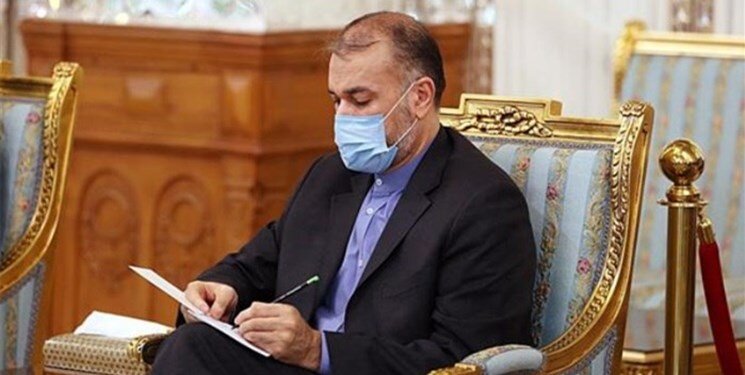Iran FM to tour West Asia

TEHRAN — According to reports published by Lebanese media outlets, Iranian Foreign Minister Hossein Amir Abdollahian will soon visit Beirut and Damascus.
The reports however did not set a specific date for the trips.
The El Nashra website published an article examining the whys of the regional tour.
According to the report, the Lebanon issue has once again become the focus of the global community, especially by France and the United States. This follows the formation of a government by Prime Minister Najib Mikati with endorsement of President Michel Aoun after successive failures to establish a government.
Mikati's schedule will be crowded with foreign meetings in early October. Qatar, Kuwait and Turkey may be the next stations on Mikati's calendar, according to the Lebanese sources.
The Lebanese media also say that a trip to Saudi Arabia by Prime Minister Mikati is also on the agenda.
The trip could be interpreted as the rapprochement between Tehran and Riyadh.
On the sidelines of the United Nations General Assembly in New York on September 24, Abdollahian described the contacts between negotiators from Iran and Saudi Arabia as “constructive”.
The Iranian Foreign Minister indicated that Tehran has made “dynamic proposals” in order to bring peace to Yemen.
Yemen has been under a relentless attack by a Saudi-led coalition since March 2015 and this has been a main source of contention between Tehran and Riyadh.
Reports also revealed that the last meeting between the representatives of Iran and Saudi Arabia was constructive under the auspices of Iraq, although the agreement on the Yemeni war has not been reached yet.
The Yemen crisis is a complex issue. The resolution of the Yemen conflict entails time given the intricacy of its security, military, political, and reconstruction once the war on the country comes to an end and an inclusive government is formed and reconciliation process starts.
According to the Lebanese media, Lebanon, Iraq and Syria may be among the easiest files in the Tehran-Riyadh negotiations talks.
Lebanon may benefit economically from the advanced reconciliation between Tehran and Riyadh.
In keeping with this calm environment, Abdollahian will arrive in Beirut in the coming days, having met senior figures including the UN special envoy for Syria, not to mention the top diplomats who have asked to meet him.
Abdollahian will carry the outcome of these meetings with himself. It is expected that he would reflect the positive vibes ahead in the region, which will ensure the achievement of Lebanon's electoral and presidential privileges in a cooling climate.
As for the Tehran-Riyadh talks, Hezbollah has repeatedly stated that it welcomes the talks, and sees it as an opportunity that could de-escalate tensions in the region.
The Lebanese government, in turn, will benefit from regional tranquility. After the talks in Baghdad, it is said that the Saudis will soon be looking to invest in Lebanon to help reconstruct the country.
The Lebanese people are suffering from economic sanctions imposed by the United States.
The political and economic crisis in Lebanon, which began in late 2019, has caused great economic pain and instability in the country.
Since the start of the recent economic crisis, the value of the Lebanese national currency has fallen by about 90%, and unemployment rate has risen sharply.
Commodity prices have skyrocketed. Civil society and economists say that about half the country's population is now below the poverty line.
Most gas stations are crowded daily, and people wait long hours for petrol and diesel. Some bring gallons with them.
The sharp devaluation of the national currency, given that Lebanon imports most of its products and goods, has had a severe impact on prices, especially fuel and essential things such as medicine and other necessary items such as wheat.
One of the biggest challenges Lebanon faces today is the unprecedented energy crisis that is literally suffocating a nation struggling to keep the light on.
This crisis is not just ongoing but getting worse and worse. It is already on the verge of reaching a point where hospitals, shops, bakeries cannot function because of a lack of fuel. Lebanon was heading towards the unknown.
Iran has sent 5 tankers carrying fuel to Lebanon, at the request of Hezbollah.
The political faction says it aims to ease the suffering of the people, serving the Lebanese “nothing more, nothing less”.
According to Al Mayadeen, a senior Iranian official stated from New York on Friday that his country will continue to supply Lebanon with fuel as long as Lebanese needs it, indicating that Tehran is fully prepared to build two stations that would cover Lebanon's much-needed electricity supply.
Lebanon can benefit from the appointment of Abdollahian as the Iranian Foreign Minister, and cherish this opportunity to expand economic ties.
Leave a Comment